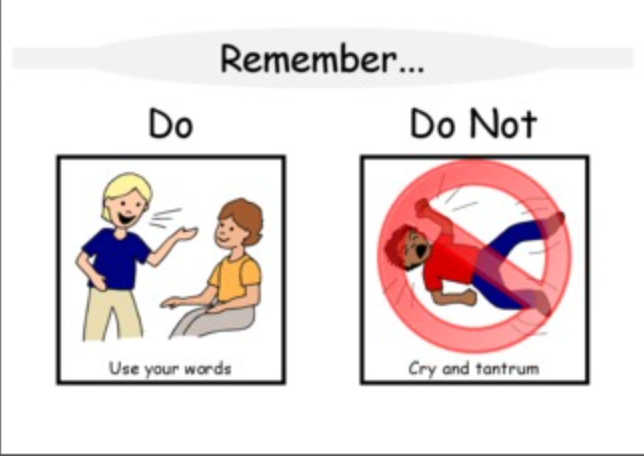Often, I'll start thinking about a phrase I want to use as a title for one of my posts and end up realizing I have more to say than what led me to the idea in the first place. Sometimes, several ideas show me how they're connected and form into a unified point. With today's post, I wasn't sure that was going to happen. In fact, while I was writing, I thought I might end up contradicting myself within the post and was sure that this set of ideas directly went against what I wrote last week about how words don't matter. In any case, I've decided to list the ideas first and then try to make the connection I found at the end. Then, you can tell me why I'm wrong in the comments. Or better yet, if you don't agree, write a guest post.
- During the school year, a really rotten thing happened in one of my class meetings (a weekly gathering of the whole grade). In short, some students, under cover of an anonymous game, wrote horrible words to name other students' baby photos. It was ugly behavior in many ways--racist (against both Black people and Asian people), misogynist, anti-Semitic, ableist, xenophobic, and otherwise inappropriate. After the event, I wrote a letter to the grade's parents and called the behavior unacceptable and mean. I don't remember the exact words I used, but I didn't give the list I gave above. One smart mother called me out. She said that if I don't name racism, I can't deal with it face on. She's right that I should have been more specific to face each kind of hate directly.
- I was recently talking with a dear friend about her child's frustration with being "treated like a baby" all the time. They and then we had interesting discussions about the way babies can express generalized needs and emotions. Crying means something's wrong, but it's not always clear if the problem is hunger, discomfort, exhaustion, or something else. As we get older and build our vocabularies, we can express nuance. Rather than crying in the pain or hunger, we can say, "Will you please pass the pasta primavera," to get exactly what we want. Naming our needs/desires helps us achieve them.
- Sometimes, I feel (and maybe we all feel) generally upset. If I allow myself to live in this nebulous state of not-quite-rightness, I won't get better. On the other hand, if I can figure out what's bothering me, I can take steps to fix the problem. That which I can contain in words loses its vastness, mystery, and power. I believe this is the premise behind talk therapy.
Now that I've written my three ideas, of course I see the connection. As many of us have said to frustrated children, we should use our words. Confining problems in language gives us ways to face and control our struggles, internal and external.
Have you ever noticed that giving a name to something allowed you to improve? Equally, if you can name what you think about my ideas, you can help me to improve. I'm here for it, so please share your thoughts in the comments.

love this one!!
Thanks! It’s a good one for writers (and aspiring writers).
Such a good reminder. I remember the moment I realized as a teenager that naming a frustration or fear or annoyance lifts a bit of its heaviness.
Hi Amy. Thanks. I wish I had fully learned this one as a teenager; I’m perpetually relearning!